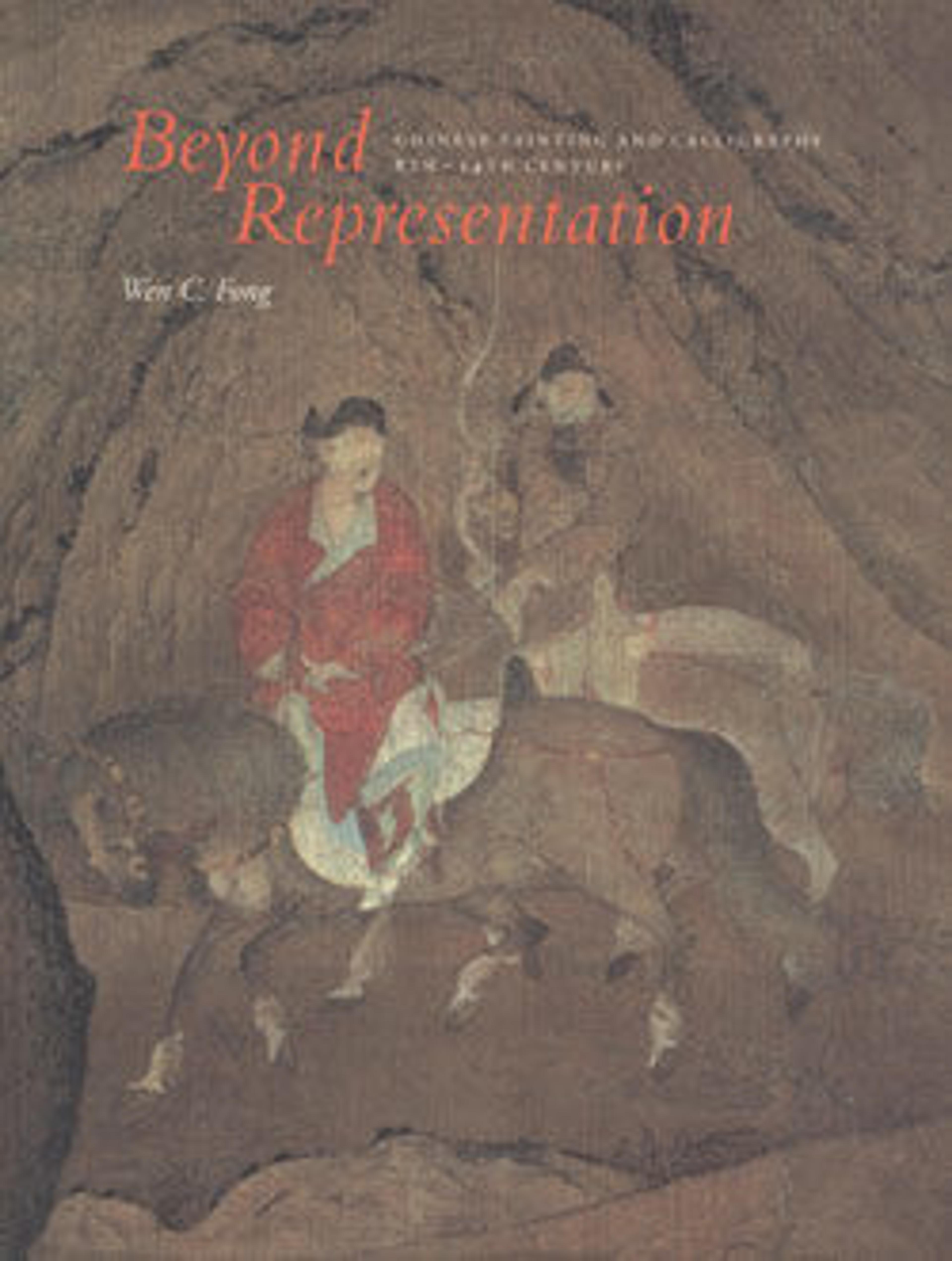Quatrain on fishermen
Following his abdication in 1162, Gaozong lived another twenty-five years in retirement with his wife, the empress Wu (1115–1197), devoting himself to scholarly and artistic pursuits. This poem, written in running script, may be a late work. The poem embellishes a round silk fan, a favored new format in Southern Song imperial art. By the late twelfth century, all silk fans were embellished with a painting on one side and a poem on the other, the image and the words complementing each other. The retired emperor often inscribed fans to bestow as gifts. The poems, when not original works by the emperor, were taken from anthologies of Tang or early Song poetry.
This poem, describes the life of the fisherman-recluse:
Small fishing boats are moored along the sandbanks of a stream.Calling to one another, the boatmen have gone to the wine-house.Turning in their catch of perch to buy drink,They retire to the song of the oars, to sleep in the rosy mist.
(Wen C. Fong, trans., in Beyond Representation: Chinese Painting and Calligraphy, 8th-14th Century [New York: The Metropolitan Museum of Art, 1992], p. 227)
This poem, describes the life of the fisherman-recluse:
Small fishing boats are moored along the sandbanks of a stream.Calling to one another, the boatmen have gone to the wine-house.Turning in their catch of perch to buy drink,They retire to the song of the oars, to sleep in the rosy mist.
(Wen C. Fong, trans., in Beyond Representation: Chinese Painting and Calligraphy, 8th-14th Century [New York: The Metropolitan Museum of Art, 1992], p. 227)
Artwork Details
- 南宋 傳 高宗/孝宗 行楷書輕舠依岸七絕詩 團扇
- Title: Quatrain on fishermen
- Artist: Attributed to Emperor Gaozong (Chinese, 1107–1187, r. 1127–1162) or
- Artist: Emperor Xiaozong (Chinese, 1127–1194; r. 1163–89)
- Period: Song dynasty (960–1279)
- Date: 12th century
- Culture: China
- Medium: Fan mounted as album leaf; ink on silk
- Dimensions: 9 1/4 x 10 in. (23.5 x 25.4 cm)
- Classification: Calligraphy
- Credit Line: Bequest of John M. Crawford Jr., 1988
- Object Number: 1989.363.7
- Curatorial Department: Asian Art
More Artwork
Research Resources
The Met provides unparalleled resources for research and welcomes an international community of students and scholars. The Met's Open Access API is where creators and researchers can connect to the The Met collection. Open Access data and public domain images are available for unrestricted commercial and noncommercial use without permission or fee.
To request images under copyright and other restrictions, please use this Image Request form.
Feedback
We continue to research and examine historical and cultural context for objects in The Met collection. If you have comments or questions about this object record, please contact us using the form below. The Museum looks forward to receiving your comments.
